Britons have long loved to be beside the seaside. It might be the sense of freedom you find on the egde of destination. Perhaps it’s the nostalgia of childhood, or the draw of a day spent swimming and sunbathing? Whatever it is, beaches continue to pull in visitors – and especially tempting is a beach break in Europe.
A recent Which? survey explored some of these captivating factors, setting out to discover the UK’s favourite European seaside destinations by asking 3,500 members to rate coastal towns and cities based on 12 factors.
Its results give an insight into what makes an ideal European seaside destination in the eyes of Britons – namely a blend of attractive town centre and seafront areas, varied attractions, quality food and drink options, and good value.
From ancient port cities to charming Algarve towns, Brits have recommended a diverse range of destinations; here’s a deep dive into the top 10.
Valencia, Spain
The list is topped by a less -high-profile city, with Valencia gaining a “destination score” of 91 per cent. It was given five stars for its beach, attractiveness, shopping, tourist attractions, peace and quiet and value for money; a testament to the city’s range of things to do combined with a laid-back atmosphere that is friendlier than that of Barcelona or Madrid. It sees far fewer tourists than some other cities in Spain, but this situation likely won’t stay the same for long.
A tempting climate sets the tone for the city; it means that beaches are still busy on December weekends, that nights out with friends are longer, and that al fresco dining is the norm rather than a sign that the summer has arrived. Walking around the city is a joy too; from the dramatic Gothic Old Town to a stunning Art Nouveau train station, the city’s architecture is an eclectic mix of local and international influences.
Centred around three main squares within 10 minutes of each other, you can take in much of the city on foot, although visits to the beaches (or the famous City of Arts and Sciences complex) might require a bike or taxi. Once you’re tired of exploring on foot, you can discover the culinary scenes of one of Spain’s unsung foodie cities.
Where to stay in Valencia
A fabulous hotel in the centre of the Old Town, Vincci Palace offers stylish and elegant accommodation. Rooms are large and have a contempoarary design, while the buffet breakfast is a particular highlight.
Porto, Portugal
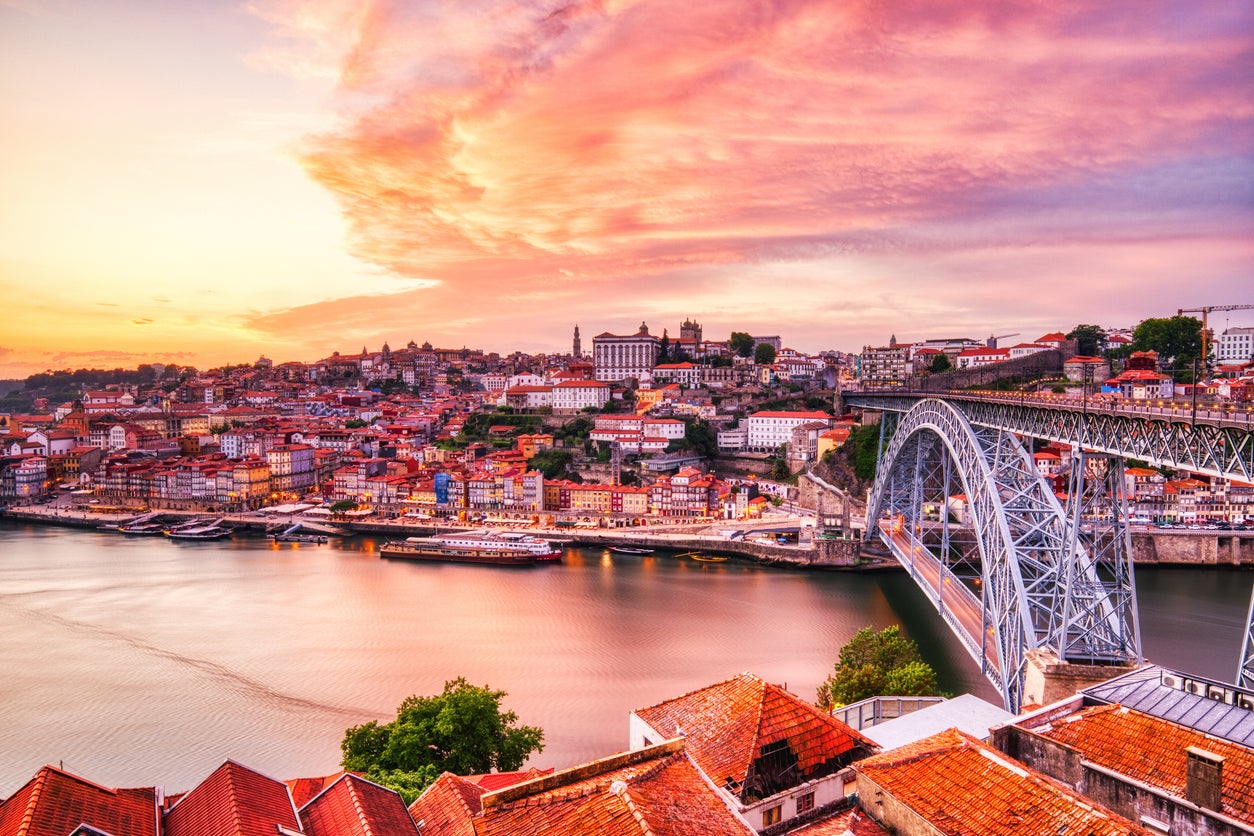
Portugal’s second city is blessed with a fantastic location on the banks of the Douro River, so it’s no surprise that it ranked highly in the seafront and attractiveness categories. It is remarkably affordable for a major European city, with visitors and locals gathering by the waterfront in the Ribeira district for cheap wines and great value meals. As you climb the steep hills and narrow cobbled streets into different districts, you’ll find even more gems, from indie boutiques to some of the city’s best restaurants. To try some upmarket traditional Portuguese cuisine, visit Adega São Nicolau.
River cruises and wine tastings are popular activities, while its selection of landmarks includes the cathedral, the Clerigos church and the Dom Luis I Bridge (worth crossing over for excellent views of the city and its colourful, russet-roofed buildings). The city’s vibrant atmosphere can still be found away from the waterside, so head to the Bolhao Market to sample local produce and get a taste of how locals live their day-to-day lives. If it’s the evening, Galerias de Paris street will give you an experience of the city’s main nightlife area.
Where to stay in Porto
Sitting in a historic building in the Ribeira district – not far from the waterfront – the Hotel Carris Porto Ribeira features slick interiors and provides excellent river views, some of which can be seen from the terraces and balconies of its rooms.
Venice, Italy
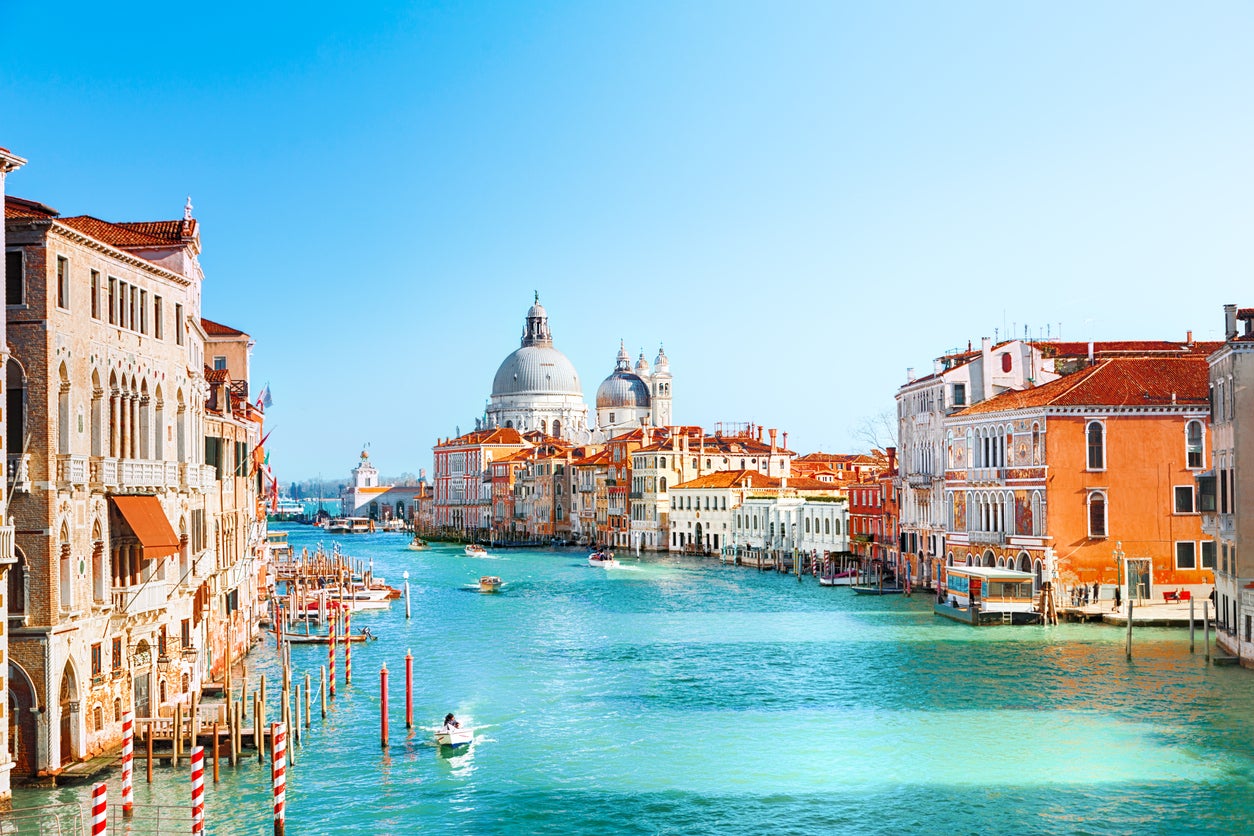
Its network of picturesque canals has come to define Venice. Lined with spectacular Venetian architecture and colourful facades and linked by often spectacular bridges (the Rialto is the most famous), the canals are the symbol of a breathtakingly beautiful city, with gondola trips offering an unforgettable way to travel around. Venice received high ratings for its seafront and attractiveness; in addition to the canals, it is surrounded by the Venetian Lagoon, providing sweeping views across the water from several points in the city.
From St Mark’s Square and Basilica to Doge’s Palace, the city is home to an impressive mix of Renaissance, Gothic and Byzantine architecture, the range of which forms one of Venice’s main attractions. It wouldn’t be an Italian city without great food and great art, and you can find both here. The Peggy Guggenheim museum showcases the American heiress’ personal collection of futurist and modernist art, while the biannual Venice Biennale showcases contemporary visual art.
Where to stay in Venice
Overlooking the Grand Canal, the Hotel Carlton provides a mix of understated, 17th-century Venetian elegance blended with charming additional features, the most notable of which is an impressive roof terrace.
Tavira, Portugal
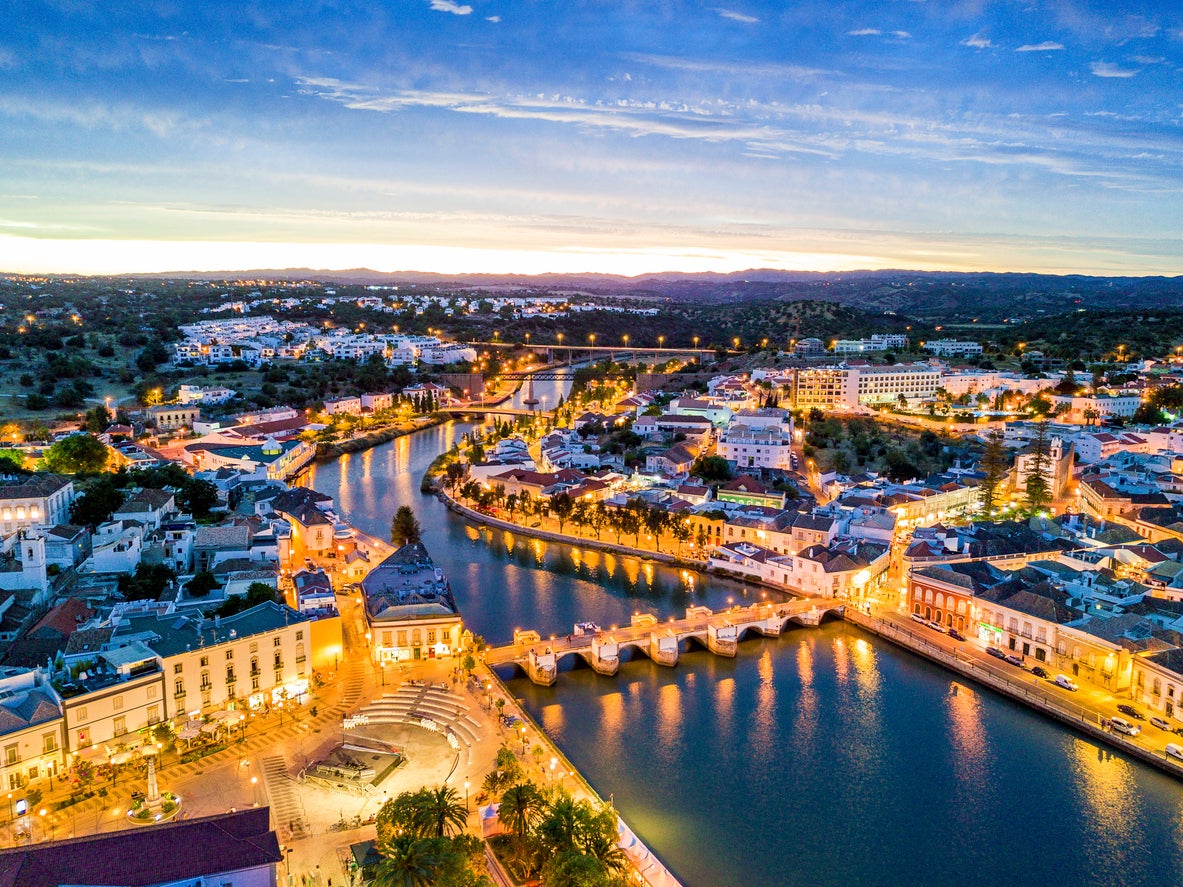
Tavira sits on Portugal’s southern Algarve coast, not far from the border with Spain. A charming, tranquil town, it ranked five stars for value, safety, friendliness, peace and quiet and its seafront, making it a great destination for a more relaxed seaside break. Tavira has a rich history that dates back to Roman times, most visible in its Roman Bridge, medieval castle and perfectly-preserved historic centre, where cobblestone streets are lined with white-washed buildings.
There are several pleasant areas in the region, from the town’s waterfront to the Ria Formosa National Park, and the area contains some amazing beaches – the Ilha de Tavira, Praia do Barril and Praia de Terra Esreita are some of the best, where white sands meet clear waters.
Where to stay in Tavira
Located near the river in the centre of the historic area, the architecturally mixed Vila Gale Tavira contains a vast outdoor pool, an indoor pool, fitness centre and bar, with Hispanic-style rustic interiors.
Pollenca, Spain
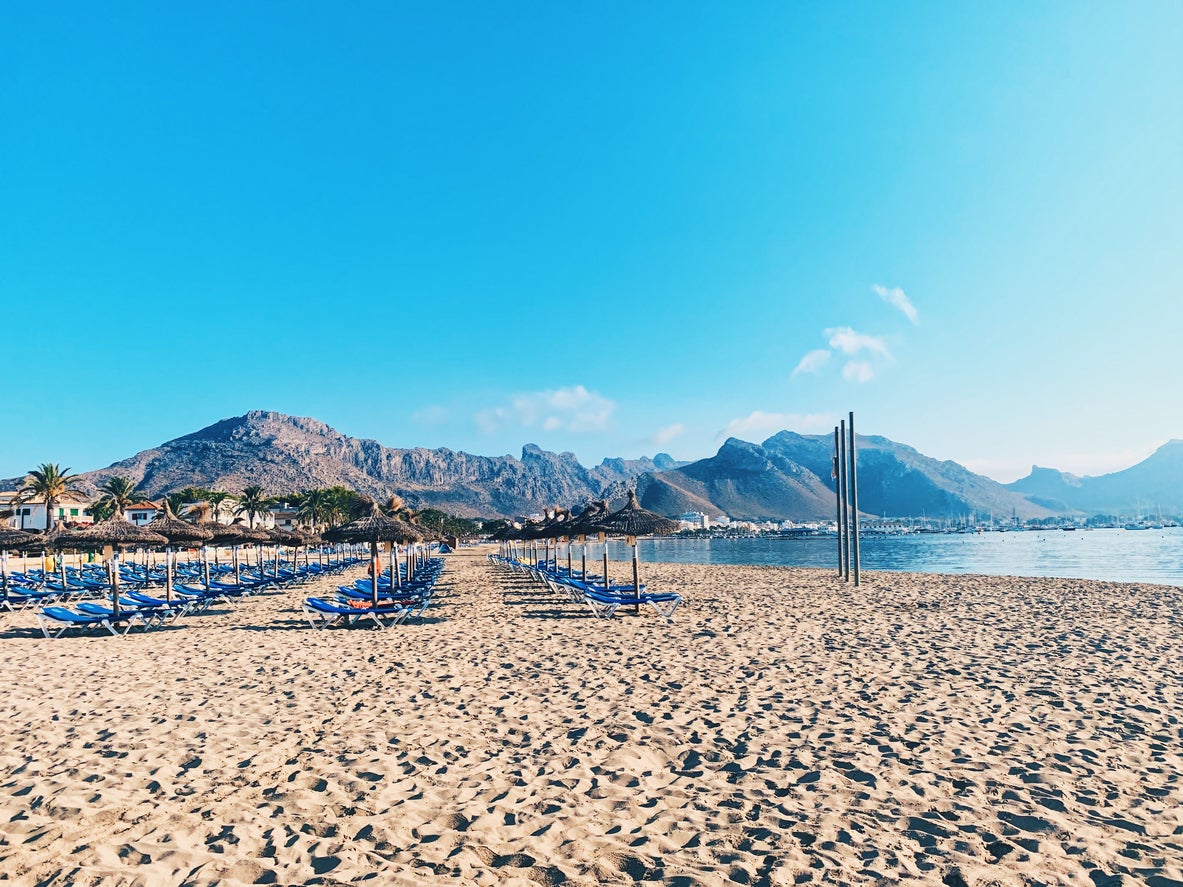
Britain’s favourite Balearic island has dozens of seaside destinations to choose from, but the northern town of Pollenca has ranked highest, with five-star ratings for its beach, seafront and peace and quiet. Nestled between mountains and the Mediterranean, Pollenca is a historic town full of 17th- and 18th-century buildings, and home to a charming Old Town of winding streets, high-quality tapas restaurants and attractive squares.
The main town lies inland, though the Port de Pollenca – where most of the beaches are – is just three miles away (the two are usually grouped together). From the port itself to beaches such as Cala Formentor, Sant Vincent and Boquer, there are several areas to have a relaxing drink or dinner, with many places that are great for swimming (even for children) and water sports.
Where to stay in Pollenca
Hotel Juma is a family-run hotel dating back to the early 1900s. It has retained period features (such as wooden beams) while adding various pieces of antique furniture to create a traditional stay in the centre of town, with a peaceful roof terrace to boot.
Chania, Greece
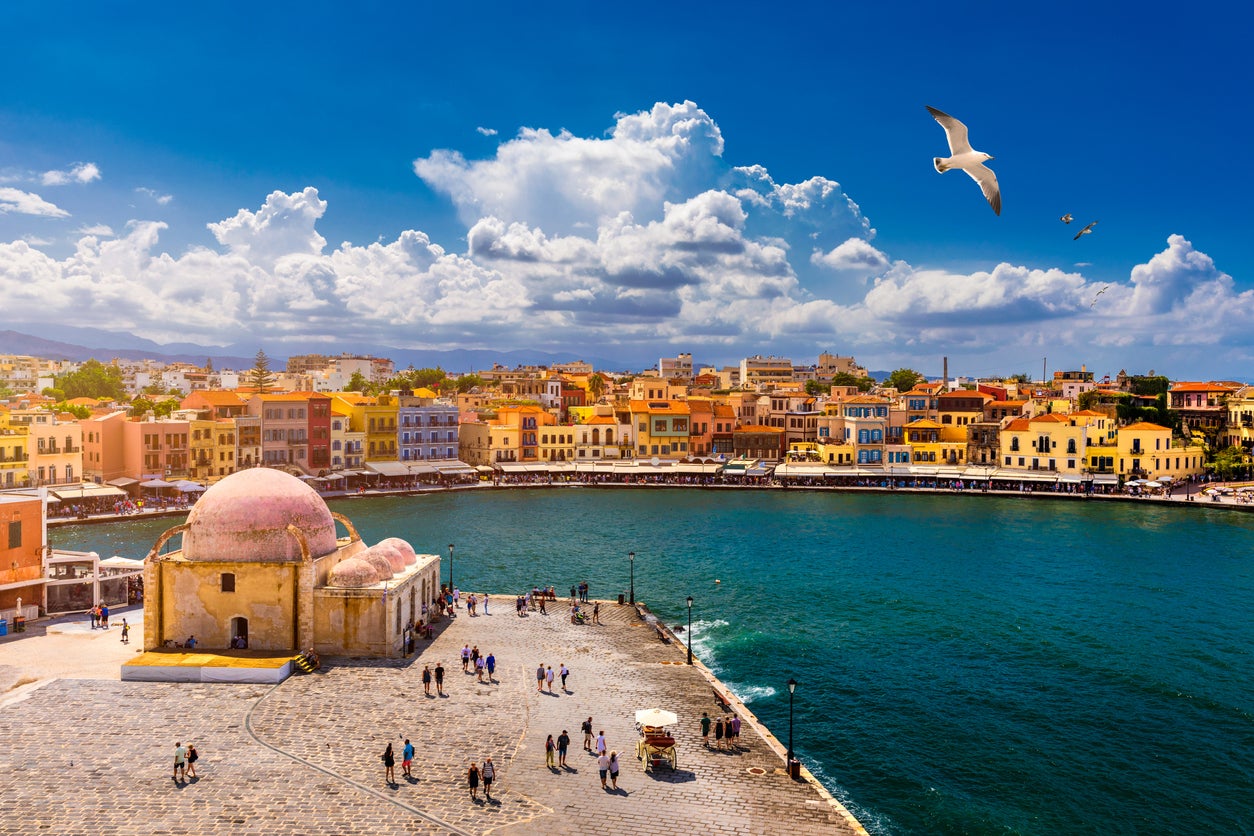
An idyllic city on the northwest coast of Crete, Chania offers visitors an appealing mix of ancient history, Greek culture and natural beauty that saw it ranked highly for its seafront, attractiveness, friendliness and food and drink offerings. The city has a rich heritage, most visible in its Venetian harbour, Firkal Fortress, Grand Arsenal and the Ottoman-era Egyptian Lighthouse, Turkish baths and Mosque of the Janissaries, many of which are contained in the Old Town.
Away from the historical, the city is surrounded by natural sites such as the Samaria gorge, villages like Loutro and an array of picturesque beaches including Balos, Balos Lagoon and Elafonisi. Though many in the area are known for their fine white sand, turquoise waters and the rugged terrain that surround them, Elafonisi is famed for the presence of its unusual pink sand.
Where to stay in Chania
With a great location right in the middle of the action (on the waterfront of the city’s harbour) and cosy, modern rooms, Porto Veneziano is an excellent choice for a comfortable stay in Chania. Rooms have balconies with sweeping sea views, while the hotel’s restaurant offers Greek breakfasts and light dinners.
Rhodes, Greece
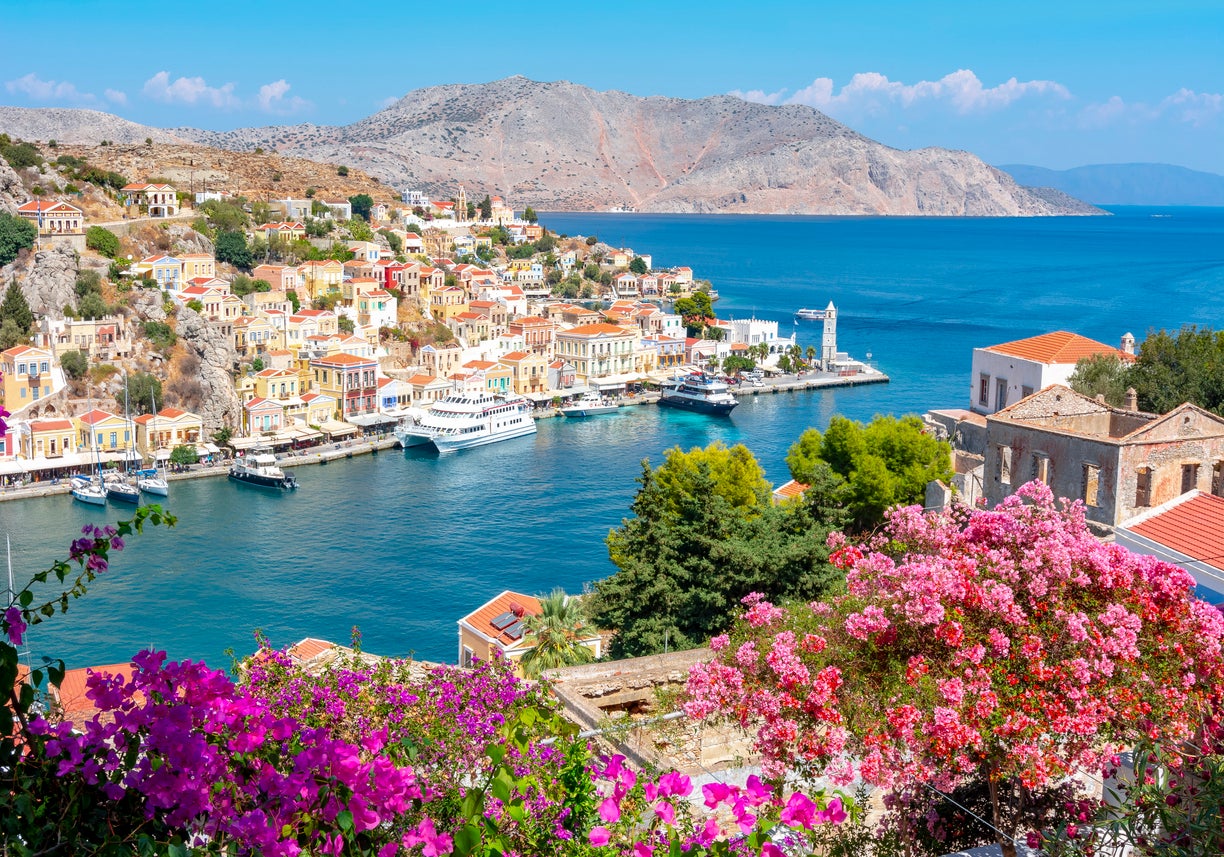
The island of Rhodes lies northeast of Crete, near the Turquoise Coast of neighbouring Turkey. Its eponymous principal city has a similarly fascinating history to Chania: the medieval Old Town is a Unesco Heritage Site, it is home to an acropolis and ancient ruins in Lindos, and was the location of the Colossus of Rhodes, one of the Seven Wonders of the Ancient World. While the walled Old Town is a maze of pretty streets and places to dine, outside you’ll find rolling hills, lush greenery and forests that are perfect for hiking, mountain biking and relaxing walks.
Rhodes is also home to many spectacular sun-drenched beaches, from family-friendly coastline to secluded spots. Tsambika, Saint Paul’s Bay, Ladiko and Kallithea are popular with groups and families due to their gently sloping sands and calm waters, but for more dramatic settings – either surrounded by towering cliffs, jagged rocks or verdant hills – try Apolakia, Fourni or Glyfada.
Where to stay in Rhodes
For a calm, adults-only retreat just 30 minutes away from Rhodes town, opt for Casa Cook. Just 10 minutes from the beach (at the foot of the Tsambika mountain), the hotel has a large outdoor pool, with some rooms containing a terrace that provides direct access to it.
Syracuse, Italy
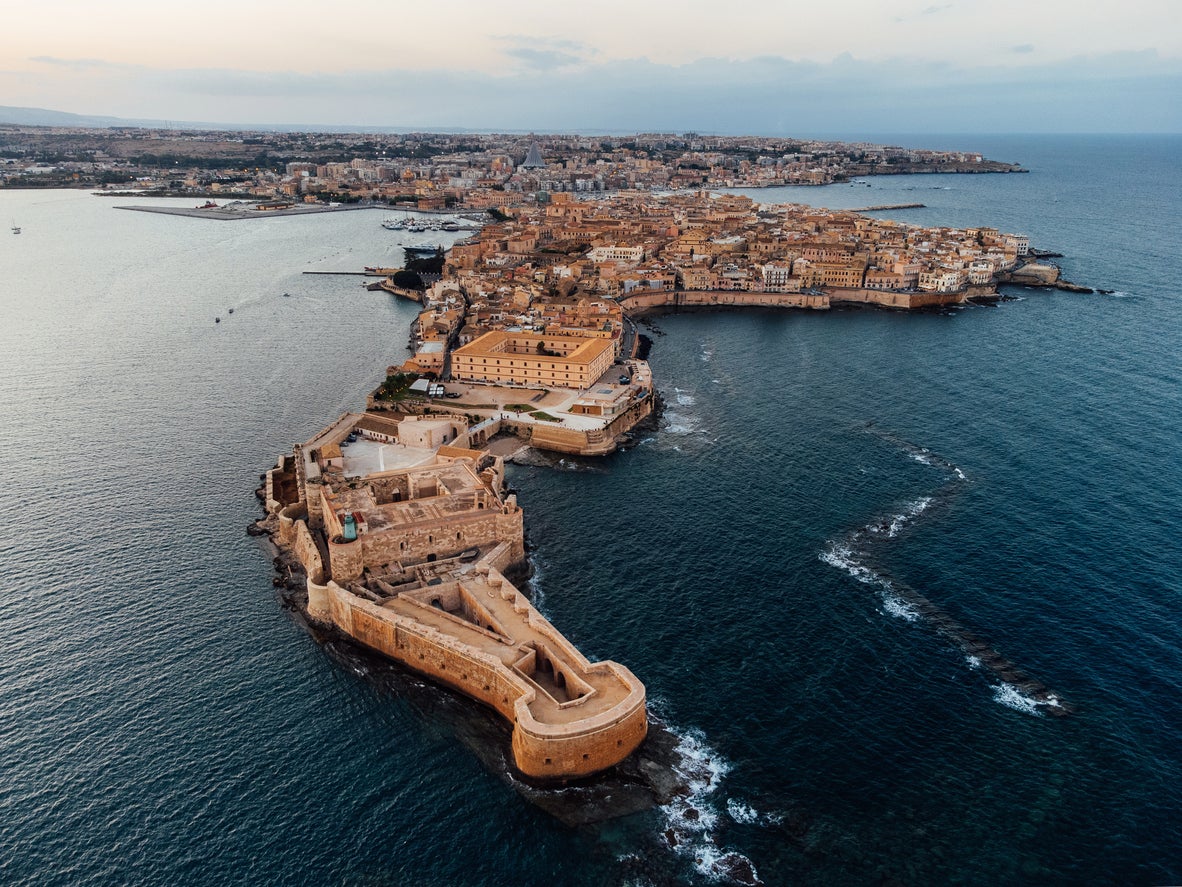
Situated on the eastern edge of Sicily (on the opposite side to the capital, Palermo), Syracuse is known for its historic centre (and Old Town), housed on the island of Ortigia. Home to an assortment of Baroque architecture, including a stunning cathedral and piazza, the area also contains the Archaeological Park of Neapolis, showcasing some of the best-preserved ancient architecture in the world in the form of a Greek theatre and Roman amphitheatre.
The city received an ‘n/a’ rating for its beaches; even though there are places to swim in the sea, there are no wide expanses of sand in Ortigia or the city. The Marina di Siracusa offers sweeping views out to sea and an idyllic setting for sipping an aperitif before dinner, but if you’re really craving golden sands, you’ll have to head a few miles out of the city to beaches such as Fontane Bianche.
Where to stay in Syracuse
Nestled in the centre of Ortigia, Hotel Roma is housed in a superb pink palazzo-type building, set among wide, paved streets and impressive squares. This grand hotel has simple interiors, but will provide a comfortable stay at the heart of the action.
Barcelona, Spain
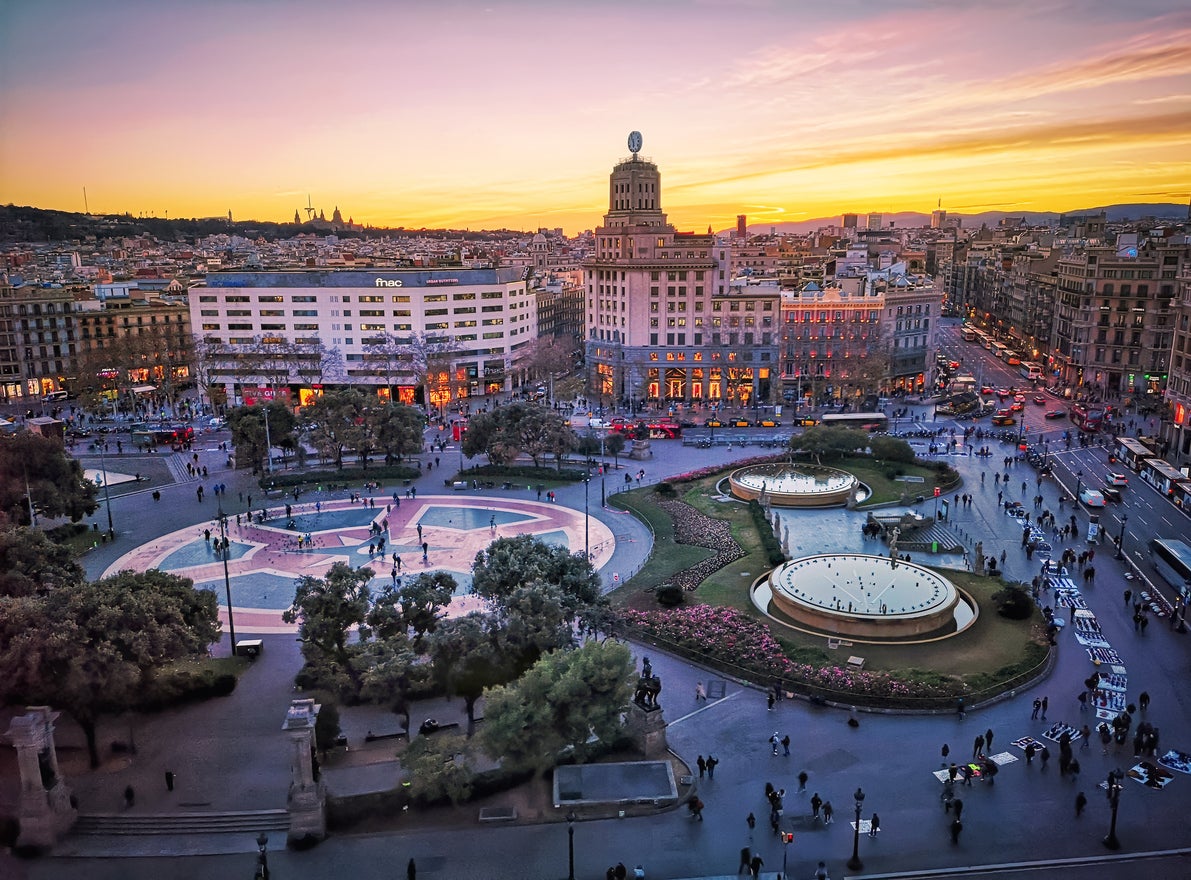
A cosmopolitan city that has retained many of its non-Spanish influences, Barcelona ranked highly for its entertainment, tourists attractions, general attractiveness and seafront areas. Anyone who has been can attest to its vast range of things to do and see, from viewing the eclectic range of buildings and the works of Picasso to strolling around the charming Gothic Quarter or Montjuic’s Olympic Park.
Barcelona’s marina and seafront areas are a serene, attractive spot, though the impressive squares and limestone-paved streets of the labyrinthine Gothic and Born districts are far more attractive. While most tourists will stick to Barceloneta or Sant Miquel for beach trips (they’re the closest to the centre), if you can spare the time and want to be surrounded by cool beach bars and buzzing paella restaurants, head to Bogatell or Llevant.
Where to stay in Barcelona
One of several Barcelona hotels that’s centred around its roof-terrace and pool, Hotel 1898 has an enviable location in the Gothic Quarter and panoramic views of the both the city and the sea. It has a second, indoor pool and spa area, making it a good choice for relaxation in the centre of the city.
Lisbon, Portugal
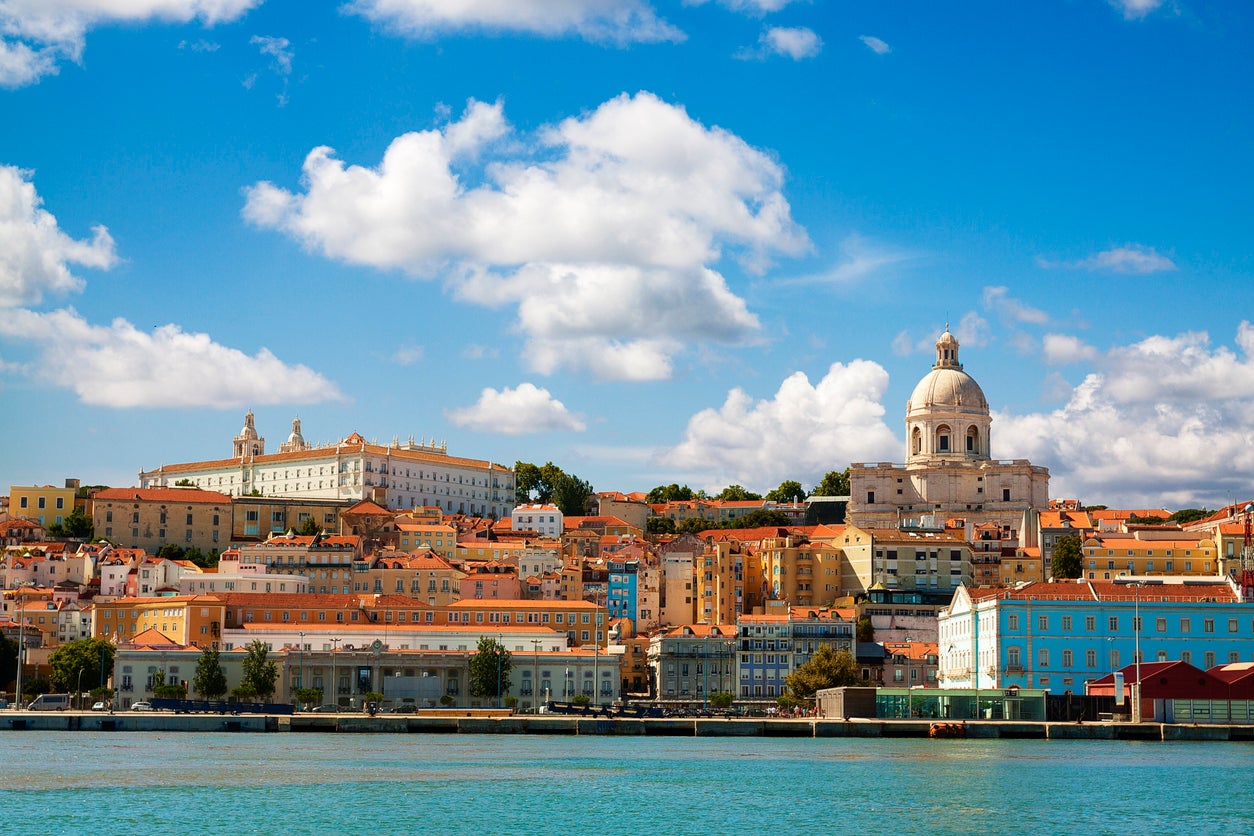
The Portuguese capital is as blessed as Porto when it comes to its waterside location, sitting on the shores of the Atlantic Ocean. The seafront and marina are focused on eating and drinking, though they offer amazing views out to sea, as do any of this hilly city’s viewpoints, from the Sao Jorge Castle or Miradouro da Graça viewpoint to its assortment of trendy rooftop bars. More architecturally diverse than Porto, Lisbon is home to a range of Gothic and Renaissance architecture, from the Belem Tower to the Jeronimos Monastery. .
Chaido and Bairro Alto are where much of the nightlife is centred, while Alfama and Baixa are other popular neighbourhoods, whether you’re looking to browse the popular Time Out Market – a food market that houses stalls run by a selection of the city’s best restaurants – to a ride in one of the city’s famous trams, Tram 28. There are no beaches in Lisbon, though nearby seaside resorts include Estoril, Cascais and Nazare (which is particularly well-known for surfing).
Where to stay in Lisbon
Close to the Tagus River and the bustling neighbourhoods of Alfama and Bairro Alto, LX Boutique Hotel is in a great location for exploring all of what Lisbon has to offer. Inside, you’ll find smart interiors and spacious rooms based on a charming blue and white colour scheme; you may be surprised to find a sushi restaurant, too.
Source : Independent


